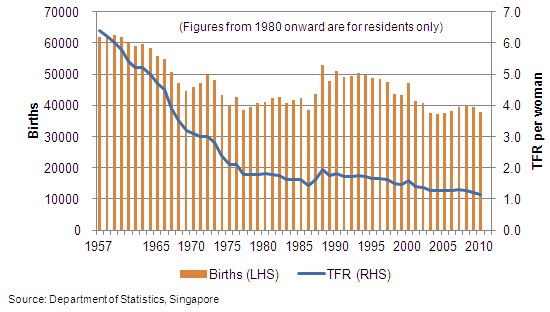
A groundbreaking study reveals that workplace flexibility could help address Singapore's plummeting birth rates, which have fallen to just 1.1 births per woman - among the lowest in developed nations.
The research, conducted by experts from the National University of Singapore and Peking University, examined how different workplace policies might influence family planning decisions among over 1,000 unmarried, employed Singaporeans.
The Current Challenge
Singapore's intense work culture has created mounting pressure on family formation. Workers clock an average of 45 hours weekly, with nearly a quarter putting in over 48 hours - far exceeding European averages of 35 hours. This "kiasu" (fear of losing) mindset, combined with traditional expectations linking marriage to childbearing, has led to over half of Singaporeans aged 20-39 remaining unmarried.
Promising Solutions
The study found that flexible work arrangements could dramatically boost fertility intentions:
- Reduced hours (36 vs 44-hour weeks) increased odds by 79%
- Flexible schedules raised likelihood by 55%
- Remote work options improved chances by 63%
Women and professionals showed particularly strong positive responses to workplace flexibility. For professional women, remote work and flexible scheduling proved especially impactful in reducing work-family tensions.
Breaking Down the Impact
Different types of flexibility showed varying effects:
Reduced Hours:
- Most powerful overall impact
- Notable influence on both men and women
- Decreased work-family conflict by 31%
Flexible Scheduling:
- Particularly beneficial for professional workers
- Stronger effect on women compared to men
- Improved work-family balance by 38.8%
Remote Work:
- Matched flexible scheduling in impact
- Highest benefit for professional women
- Reduced work-family tension by 41.7%
Looking Ahead
The findings suggest that rigid workplace policies may be a more substantial barrier to family formation than previously recognized. As nations worldwide face declining birth rates, Singapore's experience indicates that modernizing work arrangements could offer a practical path forward, particularly in high-pressure Asian economies.
The research points to workplace flexibility as a potential key to unlocking both professional success and family aspirations in modern Singapore.